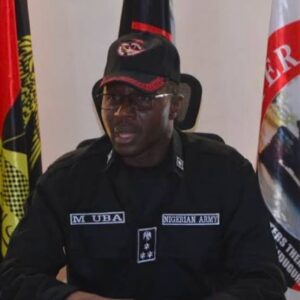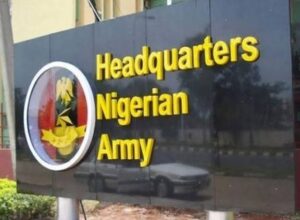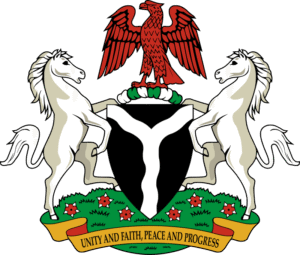By Headlinenews.news Investigations Desk
The killing of Brigadier General M. Uba in an ambush near Damboa is not an isolated tragedy—it is a defining moment for Nigeria’s military establishment. When an officer of such rank, experience, and national value falls to insurgents, the nation must pause and examine not just what happened, but why it was possible at all.

The National Patriots, alongside security experts and alarmed citizens, are calling for an independent, transparent probe into the circumstances surrounding the incident. Their demand is grounded in operational logic, constitutional expectations, and basic military doctrine: a Brigadier General is a strategic asset, not a frontline casualty.
A GENERAL IS NOT A SCOUT
Global military standards are clear: senior officers do not move into high-risk areas without layers of protection. NATO doctrine, U.S. field manuals, AU peace operations guidelines—they all echo the same principle:

> “Commanders must be shielded to preserve the strategic integrity of the force.”
Nigeria’s Armed Forces Act and internal protocols mirror this principle. Yet General Uba, an experienced commander and a well-regarded officer, found himself traveling in a way that raises more questions than answers.
What was the mission that required his presence?
Who cleared the route?
Where was the intelligence picture?
Why were essential safeguards absent, weakened, or ineffective?

These questions are not accusations; they are the bare minimum required for accountability in a security system under strain.
THE LEGAL MANDATE: A STATE MUST PROTECT ITS PROTECTORS
Nigeria’s Constitution (Section 14(2)(b)) states plainly:
> “The security and welfare of the people shall be the primary purpose of government.”

This includes soldiers—especially senior officers whose strategic contribution to national defence cannot be replaced overnight. The Armed Forces Act reinforces the responsibility to ensure proper deployment, adequate protection, and intelligence-driven movement in high-risk theatres.
General Uba’s death, therefore, is not just a battlefield loss—it is a policy and systems failure. A failure with constitutional implications.

THE AMBUSH THAT SHOULDN’T HAVE HAPPENED
In insurgency zones, senior officers typically move with:
Route clearance teams
Electronic and aerial surveillance support
Armoured convoy layering
ISR-enabled escorts
Real-time intelligence updates
A rapid extraction capacity
If any of these were missing, delayed, or compromised, the system failed him.

Insurgents do not stumble upon Generals by chance.
They are tipped off, or they exploit avoidable lapses.
The Nigerian people deserve to know which of those occurred.
Truly, these are pertinent questions needing urgent answers. In a normal military battle formation and disposition in the field, the brigade commander’s headquarters should be positioned where he was, but four to five layers behind the immediate front, not at the tip of a patrol column. More light must be focused on the patrol operations he was alleged to be conducting before they ran into the enemy killing zone. Such patrols, in a properly staffed and equipped theatre, can and should be conducted by company commanders (Majors), battalion commanders (Lt. Colonels), or Colonels, while the brigade commander maintains an overwatch posture from a secure tactical HQ.
The National Patriots note that Nigerians have not been told why there was no visible Nigerian Air Force support at the onset of the patrol—no prior air sorties to comb and dominate the stretch of terrain, no aggressive overhead presence to knock off likely enemy ambush locations before ground troops advanced. In a theatre as volatile as Damboa, that absence is not a small oversight; it is a critical operational question that must be answered, documented, and corrected.

—Excerpt and technical concerns highlighted by the National Patriots Movement
WHO KNEW HIS MOVEMENT? WHO APPROVED IT? WHO BRIEFED HIM?
Movements of this magnitude are never impulsive. They require:
Command approvals
Intelligence briefings
Surveillance confirmation
Escort planning
Tactical coordination
Somebody approved it.
Somebody briefed him.
Somebody saw the intelligence picture.
Somebody knew the timing and route.
A transparent investigation must establish whether:
The intelligence was faulty.
The protection plan was inadequate.
The systems in place were sabotaged or weakened by insiders.
Nigeria has lost too many skilled officers—some to air crashes, some to mysterious circumstances, some to field failures that have never been sufficiently explained. Silence does not restore confidence. Truth does.
THE PATTERN NO ONE WANTS TO NAME
Nigeria has a troubling history of losing high-value officers. Each time, the public is left with unanswered questions, unaddressed suspicions, and uncorrected vulnerabilities.
The military cannot continue operating with opaque after-action processes that fail to identify systemic loopholes or internal compromise. Without transparency, trust fractures—and fractured trust is fatal to any counterinsurgency operation.
A DAY OF RECKONING FOR NIGERIA’S SECURITY STRATEGY
General Uba’s death is not just a personal tragedy; it is a national warning siren.
A wake-up call that Nigeria’s current approach to the insecurity war needs urgent transformation.
MODERN WARS ARE NOT WON WITH BOOTS ALONE
The world has moved far beyond the era where manpower and convoys determine victory.
Modern warfare lives in the sky and the cloud.
The United States, Israel, Turkey, China, and even smaller nations like Azerbaijan rely on:
Persistent aerial surveillance
Armed drones
Satellite-linked intelligence
Digital battlefield integration
AI-assisted target analysis
Real-time data fusion
Electronic counter-sabotage systems
Today, insurgents hide in mobile clusters, move at night, and exploit terrain. The only way to overcome this is with technology—not sheer courage.
Nigeria has brave soldiers.
What it needs now is technological supremacy.

DIGITALIZATION: THE WARFARE NIGERIA MUST ADOPT
Nigeria must urgently embrace digital battlefield infrastructure to eliminate leakages, sabotage, and intelligence failures. This includes:
▪︎ Encrypted, tamper-proof route clearance systems
Movements—especially of senior officers—should be digitally logged and monitored, with highly restricted access.
▪︎ Real-time drone surveillance
Continuous aerial monitoring of hotspots ensures no ambush is ever a “surprise” again.
▪︎ AI-enabled hotspot prediction
Machine learning can identify insurgent patterns and likely ambush zones long before humans can.
▪︎ Digital counter-intelligence architecture
Internal sabotage thrives when systems are manual, informal, and opaque. Digital logs, layered authentication, and audit trails dramatically reduce insider compromise.
▪︎ Immediate strike capability through precision drones
Once a hostile cell is detected, it should be neutralized instantly—not after long deliberations or bureaucratic delay.
This is how modern militaries operate.
This is what Nigeria must embrace, without hesitation.
THE POWER OF SUPERIOR AIR DOMINANCE
In today’s conflicts, air superiority determines the outcome.
Foot soldiers are essential—but air power decides victory.
The United States never fights insurgents without:
Round-the-clock drone presence
Real-time satellite coordination
Instant-response air strikes
Persistent ISR coverage
Why should Nigeria be any different?
Nigeria has the capacity to build or acquire the systems it needs. What is required is:
Consistent investment
Strategic prioritization
Zero tolerance for diversion, corruption, or compromise
A leadership willing to modernize without excuses
If Nigeria wants results, it must fight like nations that get results.

THE WAY FORWARD: A NEW MILITARY DOCTRINE FOR A NEW AGE
General Uba’s death underscores a strategic truth:
Nigeria cannot continue fighting 21st-century terrorists with 20th-century methods.
A national transformation must include:
A technology-driven security doctrine
Aerial-first counterinsurgency strategy
Digitization of intelligence networks
Stronger internal vetting to eliminate saboteurs
Clear accountability for operational lapses
Nigeria’s soldiers are courageous.
But courage without modern support is not strategy—it’s sacrifice.

THE NATIONAL PATRIOTS’ DEMAND IS JUSTIFIED
The National Patriots are calling for a probe not out of political pressure, but out of national necessity. Their argument is simple:
> “Nigeria must learn from this tragedy or it will repeat itself.”
An investigation is not an indictment of the military.
It is an investment in its future integrity and effectiveness.
A GENERAL HAS FALLEN. A NATION MUST RISE.
Brigadier General Uba represented the best of the Nigerian military—discipline, integrity, commitment to his men, and loyalty to the nation. His death must mark a turning point, not another forgotten headline.
Nigeria must:
Investigate the incident transparently
Identify and correct systemic failures
Modernize its warfare strategy
Digitize its intelligence architecture
Eliminate sabotage and internal compromise
Empower its troops with technology that saves lives
The cost of inaction is measured in continued loss—of officers, of soldiers, of territory, of confidence, of peace.
Nigeria can win this war.
But only if it chooses to fight with the tools, strategies, and systems that modern warfare demands.
General Uba paid the price that the system should have prevented.
Now the system must redeem itself.
The National Patriots Movement and Headlinenews.news Special Investigative Report.




